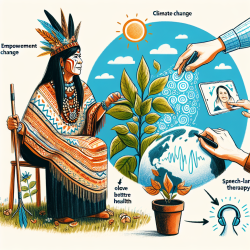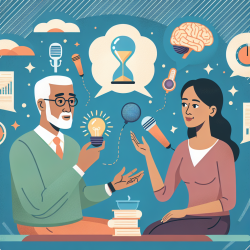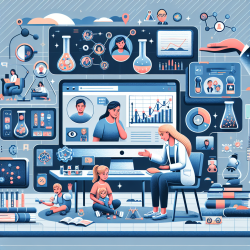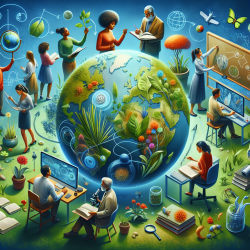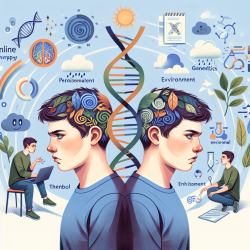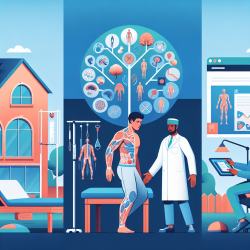Empowering Change: Harnessing Indigenous Knowledge for Better Health Outcomes
As practitioners dedicated to enhancing the lives of children, it is crucial to continuously seek innovative and effective methods to improve our practice. A recent review titled "Indigenous Peoples: Traditional knowledges, climate change, and health" provides invaluable insights that can be applied to speech-language pathology and other therapeutic practices. This blog post aims to highlight key findings from the review and encourage further exploration of Indigenous knowledge systems to foster better health outcomes.
The Power of Indigenous Knowledge
Indigenous Peoples, despite representing only six percent of the global population, manage approximately eighty percent of the world’s remaining biodiversity. Their traditional knowledge systems (TKS) are deeply rooted in sustainable practices and holistic worldviews, which are crucial in addressing the health impacts of climate change. By understanding and integrating these knowledge systems, practitioners can enhance their therapeutic approaches and contribute to more effective health outcomes.
Understanding the Context
Indigenous communities have historically faced marginalization, which has been exacerbated by climate change. This has led to unique health challenges that require tailored mitigation and adaptation strategies. The review emphasizes the importance of viewing Indigenous Peoples not through a deficit lens but by recognizing their strengths and contributions to global health and environmental sustainability.
Practical Applications for Practitioners
- Incorporate Indigenous Perspectives: Integrating Indigenous worldviews and traditional knowledge into therapeutic practices can provide a more holistic approach to health. This involves respecting and acknowledging the cultural contexts of Indigenous clients.
- Promote Language Preservation: Language is a vital component of cultural identity and health. Encouraging the use of Indigenous languages in therapy can enhance communication and support cultural preservation.
- Foster Collaborative Relationships: Building partnerships with Indigenous communities and leaders can facilitate the sharing of knowledge and resources, leading to more effective health interventions.
Encouraging Further Research
The review highlights the need for continued research into the intersection of Indigenous knowledge, climate change, and health. Practitioners are encouraged to engage in collaborative research efforts that prioritize Indigenous voices and perspectives. This not only enriches our understanding but also empowers Indigenous communities in the process.
Conclusion
By embracing Indigenous traditional knowledge, practitioners can contribute to more equitable and sustainable health outcomes. This approach not only benefits Indigenous communities but also enriches the practice of speech-language pathology and other therapeutic fields. To delve deeper into the insights provided by the review, practitioners are encouraged to explore the original research paper.
To read the original research paper, please follow this link: Indigenous Peoples: Traditional knowledges, climate change, and health.
